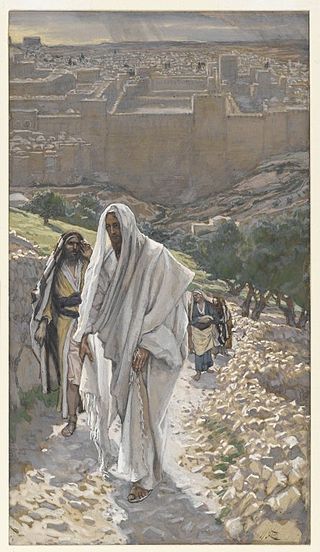
(Wikimedia Commons, Public Domain image)
Compare Matthew 26:6-13; Mark 14:3-9; Luke 7:36-50
This story raises an issue that has occupied me for years, and for which I have no neat and clear answer.
The world is full of poor people, and many are malnourished and even starving.
I think that starvation and malnutrition can and urgently should be ended.
In this context, I think of one of my favorite charities, the Liahona Children’s Foundation. Among the many reasons I like it is the fact that I regard its mission as achievable. Too often, when we consider world poverty and related matters, the task seems so overwhelmingly huge that we’re inclined to despair and do nothing. However, if we break very large projects down into smaller bits, they become much less intimidating. The journey of a thousand miles begins, as the saying goes, with a single step. The Liahona Children’s Foundation proposes not to end world poverty altogether, but to end hunger and malnutrition among Latter-day Saint children — a finite task that seems entirely practicable, completely feasible, as well as morally imperative.

(Jésus va le soir à Béthanie) James Tissot, d. 1902
But back to the main issue:
One of the worries that sometimes afflicts me when I think about caring for the poor is whether an expenditure on anything else beyond absolute necessities can be justified while there’s severe poverty in the world. On one level, it’s tempting to say that every bit of our surplus, everything beyond what we ourselves need to live, ought to go to the starving and the poor until they’re raised from poverty and are no longer hungry.
But then I think, “What of other worthy causes?” What about the arts, which survive in many cases only through donations? Do we really want to live in a world without symphony orchestras, operas, and art museums? What about the prevention of animal cruelty and the construction of women’s shelters and the funding of archaeological digs? Many magazines would fold without benefactors. So would many colleges and universities. So, obviously, would virtually all churches, synagogues, mosques, and temples.
So long as hunger exists, should there be ski boats, classical orchestras, good restaurants, degrees in philosophy, professional sports, vacations, or rock concerts? But, without such things (and the many comparable things that could be mentioned), wouldn’t this world be a dismal and charmless place?
Jesus seems to suggest an answer to the question: Yes, it’s important to help the poor. But there are other important things, too.
And what would happen to the developed economies if people suddenly sent all of their surplus funds to Somalia? What if nobody bought big-screen televisions any more, or new cars, or better furniture, or new houses, or new music? What if nobody went to concerts or watched movies? How many would be thrown out of work? How many currently comfortable people would then fall into poverty? Would the developed nations actually lose their capacity to help the poor and the hungry?
The question still troubles me, though.
Obviously, some sort of balance is necessary. Exactly where it should be, though, I can’t say. It’s hard enough to find that balance for myself, and I don’t know that I have found it; I’m certainly in no position to prescribe it for others. But every morally serious person ought sometimes to think about this question, to examine his or her life and, if necessary, to make a course correction or to recalibrate.
Posted from Tel Aviv, Israel
















